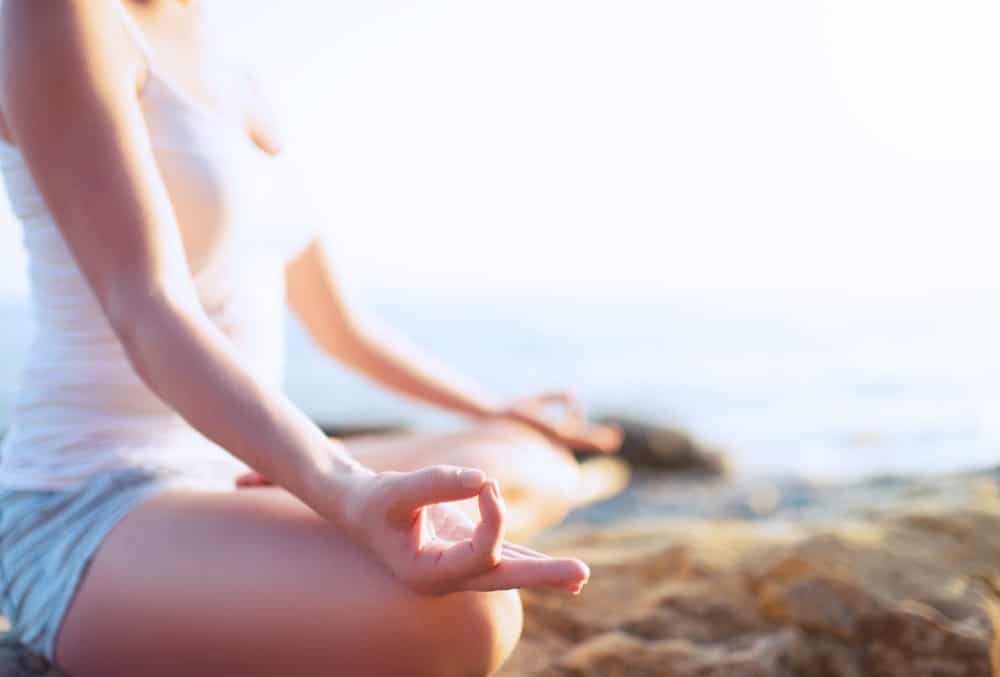Getting sober doesn’t automatically mean you’re going to live happily ever after sadly. It’s a difficult battle to stay sober as your brain copes with a life without drugs. Most addicts will face depression to some degree because the brain’s chemistry has been changed. Many times, a person becomes addicted to harmful substances due to their symptoms of depression. Stopping the substance allows those repressed feelings to come back. Physically, drugs and alcohol sucked the vital nutrients from your body. No matter what substance you used, you likely neglected yourself in many ways, including your diet. Once recovery has begun, your physical condition will be in bad shape. For example, if you used stimulants, you may have lost sleep for days at a time without eating. Marijuana can cause you to eat plenty but not nutritional food. Nutritional experts say that when your body is void of nutrients, this can be a cause of depression. Just the toxic effects on top of the irresponsible lifestyle alone can cause depression. You may not feel it or notice it until the numbing effects of substance abuse have worn off however. Perhaps one of the most powerful reasons depression sets in once you’re sober is the acts you committed while you were using substances. You may have had to do some things to get the money for your substance which included committing crimes. You may have witnessed tragedies like others around you overdosing or dying. You may have suffered extreme loss which can lead to deep depression when you’re sober enough to realize everything that’s happened to you. You know that in some way, you have gone beyond your own moral boundaries. This can be an extremely painful experience.
What Drugs Are Doing to Your Brain
Taking substances affect your brain on many levels. The amount of Dopamine that pours into your brain when taking drugs gives you an elevation in emotion, motivation, and pleasure. When you consistently take drugs, the brain stops creating Dopamine which is basically what allows you to feel euphoric and happy. Drugs change the chemistry of your brain in many ways no matter what your substance of choice is. Addiction causes your brain to lose its ability to offer up happiness or pleasure. For those who abuse drugs, you feel flat, lifeless, and depressed. You can’t enjoy any type of activity that once gave you joy except the drug you’ve been using. When you’re in recovery, it takes quite some time for the brain to start producing dopamine again.
How Addiction is Used to Deal with Depression in the First Place
The psychology behind addiction include two behaviors, to cope and to feel comfort. While you’re in the midst of addiction, substances allow you to avoid reality so you don’t have to deal with anything painful. The behavior of avoidance is a method of coping. Using substances everyday becomes a ritual of relief which easily becomes addictive. When you enter into substance abuse treatment, you lose the routine you had while using and must begin facing your reality. This can be an anxious ridden experience as it’s something you’ve worked hard to escape.
Dealing with Depression Once You’re Sober
There are holistic methods that will help you gain back your happiness without the use of substances. As you begin to replace your old, unhealthy habits with new habits, you will start to feel hope. 
Healthy Eating and Exercise
When you’re using substances, your eating habits are usually terrible which is slowly depleting your body of valuable nutrients. Nutritional experts have stated that nutritional depletion can contribute to depression and that it can be improved by providing the right nutrition. Therefore, the lifestyle and the toxic effects of drugs can increase or create depression. A healthy diet can help with many of the symptoms you experience while getting through the withdrawal process and becoming sober. Once you start eating properly, you’ll regain strength to perform physical activities which can help:
- Reduce stress levels.
- The body release natural endorphins so you can feel happy again.
- Relieve the symptoms you’re experiencing from being sober.
- Increase your energy.
- Give you more confidence.
- Improve your clarity and ability to think.
Join Self-Help Support Groups
Perhaps one of the most important aspects of a self-help group when you’re feeling depressed is to know that you’re not alone. As it’s natural to isolate yourself when you’re depressed, getting yourself to a twelve-step meeting can give you the feeling of support you need. You can talk about your deepest feelings while being fully supported with people that understand your struggles. Groups like Alcoholics Anonymous and Narcotics Anonymous play a large part in the recovery process. Push yourself to attend these meetings regularly to remind you that the battle is not just yours and that you will get past the depression.
See a Therapist Regularly
Individual therapy and counselling should be used in conjunction to group therapy while you’re getting used to being sober. Attending individual therapy allows you to talk candidly with a therapist. Through a variety of methods, you can get down to the real reason your started using in the first place. Together, you will explore the darkest parts of your mind, pulling out weeds that are in part, causing the depression you’re experiencing. While it may be painful at times, the point is to help you look at your demons and slay them so you can live a happy, fulfilling life.
Replace Old Negative Habits with New, Positive Habits
You can’t let go of substance abuse and not replace it with something new. In fact, you’ll have a lot of space in your life to fill. As you gain your strength and mental capacity, you’ll be able to get involved in activities you may not have done for years. Find positive habits that bring you fulfillment so you can enjoy yourself sober.
- Spend time outside overlooking the water, mountains, forests, or whatever inspires you.
- Find the compassion within yourself.
- Start writing in a personal journal.
- Try new things that range from growing your own garden to ziplining.
- Attend sober events that are exciting like a monster truck rally, horse jumping, or dog shows.
- Volunteer your time.

Limit Your Stress Levels
You may be getting back into your regular routine after being in the safety of a rehabilitation center. This can potentially cause stress as you face up to responsibilities and memories of things you did while you were using. There are simple tools you can use to help reduce stress. Dedicate your time and energy to bringing peace into your life.
- Don’t waste time and energy on engagements that aren’t important to you.
- Avoid people in your life that are negative.
- Be good to yourself before anybody else.
- Take life a little slower by practicing mindfulness throughout your day.
Avoid Situations That Can Trigger Sadness or Depression
Along your path to recovery, you might end up in situations that could trigger sadness. Weddings or events where everyone is enjoying themselves and freely drinking can greatly bring you down. It can crush any advancements you’ve made in recovery so don’t feel obligated to attend every event. If you do have to attend an event like this, you may wish to bring someone from your support system. Give yourself time limits so you don’t have to spend the whole day subjecting yourself to the party atmosphere. Greet those who are important to you and gracefully make your exit.
Yoga and Meditation
Depression at it’s core is the effect of repressing your emotions. Addiction and depression have been closely linked because substances numb your ability to feel what you are afraid to feel. With the use of yoga and meditation, you can learn the necessary tools to deal with all the emotional storms occurring within you. Yoga and meditation are widely used in many substance abuse programs. As you tap into your mind, you can begin to control the inner voice that may be offering you destructive information. The breathing techniques within yoga and meditation also allow you to relax deeply. The more you utilize the tools you learn through these spiritual practices, the more you can use them through intense emotional triggers. When you’re experiencing a deeply uncomfortable moment, you can gently address the feelings that are coming with it. The more you do this, the more you let go. Practicing mindfulness allows you to feel your inner pain and release it. 
Remember to Be Grateful
The depression you experience during addiction and thereafter can take a hold on your life, making you feel like efforts to feel better are hopeless. It has been found that gratuity is an extremely powerful tool and a way you can offer self-compassion during recovery. The thoughts you have cause neurochemical changes. So, when you practice being grateful, you receive rewarding neurotransmitters, like Dopamine. The power of your thoughts can heal depression and negate bad habits that make you feel badly about yourself. Instead of thinking about what you lost throughout your bout with addiction, start changing the way you think about life. It may be difficult at first but when you write out or think on what you have to be grateful for, it can change the way you feel. It may begin with the act of feeling grateful simply because you’re alive. Your future is in front of you and you’ve developed a support system of people in your life that believe in you. Your healing process of experiencing depression once you’re sober can be helped through various methods. The kind of food you eat, how much water you consume, and how much you exercise can greatly reduce depression. They boost the mind’s ability to start working more efficiently again. Getting together with your support group or therapist regularly will help you deal with your depression at a psychological level. Tools to help you deal with triggers and stress like relaxing meditation or yoga allow you to life your life in a more compassionate way. Recovery will allow you to regain what you may have lost. When you do good things for yourself, eventually you will get past the depression that comes from getting sober.
Sources:
Journal of Substance Abuse Treatment (Dec. 1994). Shame, guilt, and depression in men and women in recovery from addiction. Retrieved from, https://www.journalofsubstanceabusetreatment.com/article/0740-5472(94)90001-9/pdf?cc=y= NCBI (Dec. 2005) Addiction Science and Clinical Practice. Mood Disorders and Substance Use Disorder: A Complex Comorbidity. Retrieved from, https://www.ncbi.nlm.nih.gov/pmc/articles/PMC2851027/ NCBI (June 2008) Indian Journal of Psychiatry. Understanding nutrition, depression and mental illnesses. Retrieved from, https://www.ncbi.nlm.nih.gov/pmc/articles/PMC2738337/

